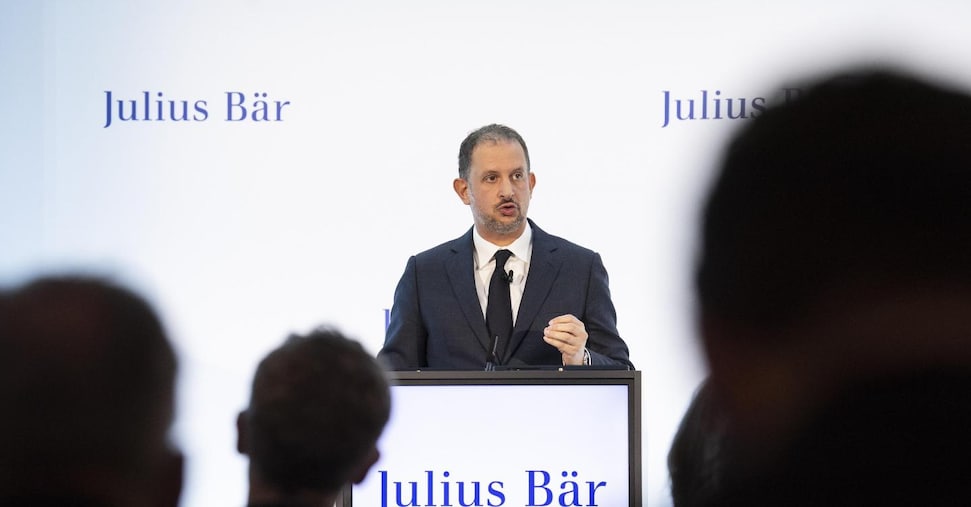Listen to the audio version of the article
With the resignation of CEO Philipp Rickenbacher, Julius Bär, one of the major players in Swiss private banking, is trying to right a ship that has unexpectedly tilted in recent months. What caused the renowned Zurich bank to deviate from its consolidated course was the maxi credit granted to the Signa real estate group of the Austrian entrepreneur René Banko, a group that had clearly fallen into crisis. Rickenbacher, who had been at the helm of Julius Bär since 2019 and is leaving with immediate effect, said: “With the board of directors we have come to the common conclusion that it is in the best interests of the bank for me to resign.”
The new summit
Philipp Rickenbacher’s current deputy, Nic Dreckmann, will take over as interim CEO, while the search for Rickenbacher’s successor will take place in parallel.
Additionally, board member David Nicol, head of the risk committee, will not stand for re-election. Although he himself was subjected to some criticism for the Signa affair, the president of the board of directors Romeo Lacher remains in his position. “We have taken important steps to eliminate all uncertainties related to our private debt business and the future impact of this incident on our financial results,” Lacher said. Among the measures there are also the abandonment of this type of activity and also “substantial” reductions in the variable remuneration of managers. The CEO and five other members of the general management implicated in the Signa case will not have bonuses.
The burden of 586 million francs
The Swiss bank, which has activities largely centered on the management of private assets, has entirely written down its exposure to the Austrian real estate group, which in Switzerland is, among other things, a shareholder of the Globus department stores. The cost to Julius Bär is 586 million francs (around 630 million euros at the current exchange rate). This had a significant impact on the results for the 2023 financial year, released together with the change at the top. Net profit (IFRS) fell to 454 million francs, 52% less than a year earlier. Despite this contraction, the dividend will be left unchanged, at 2.60 francs per share. In terms of assets under management, Julius Bär also confirmed its good position; the net inflow of new funds was 12.5 billion francs, an increase compared to the previous year, and the total assets managed at the end of 2023 were 427 billion francs (+1%).
Cuts and savings
The management of the Swiss bank has partly revised the objectives to be achieved by 2025. The savings are now set at 130 million francs, 10 million more than previously indicated. The bank intends to eliminate 250 jobs, out of a total of 7,435 it had at the end of the year just ended. The target for pre-tax profit remains that of annual growth above 10%. These statements on savings and profitability were appreciated by the market, which has thus at least partially absorbed the disappointment over the 2023 results, which are below the expectations that were created at the time. On the other hand, the CEO’s resignation was expected after the emergence of the Signa case and this step was welcomed by the market. In Zurich, Julius Bär shares initially rose sharply and then slowed down their progress, closing at +0.9%, on a day in which the Swiss Smi index fell by 1%.
